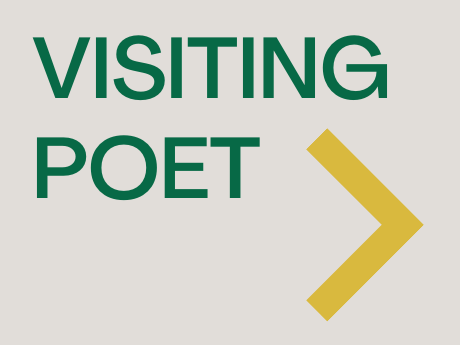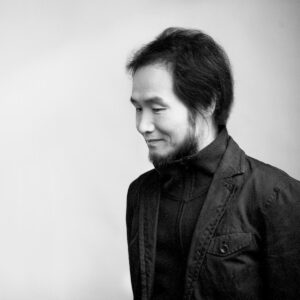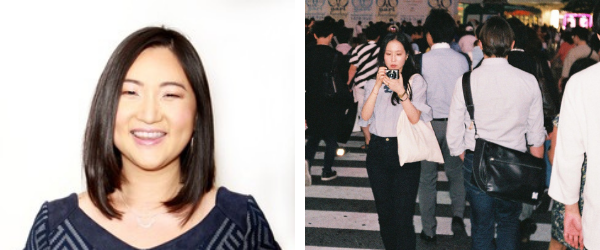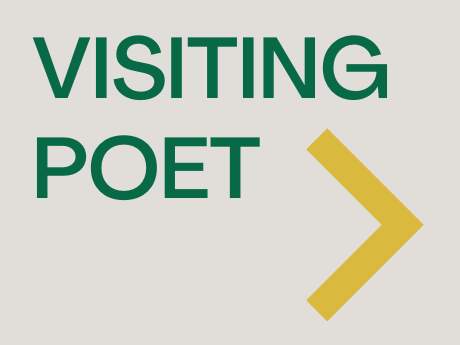Visiting Poet
Visiting Poet: Hae Yeon Choo and Eunsong Kim on Park Nohae

A Burial for Hands
On this Children’s Day
He had wanted to go to an amusement park
Holding the hands of his wife and son,
Jeong who used to smile sucking on a cigarette,
His hand now severed off
And because he was in his work uniform
Neither the CEO’s luxury vehicle,
Nor the factory owner’s sedan,
Or the manager’s car would take him
So after bleeding out for some time and then
Holding the back of a truck he went to the hospital
His caught hand was still squirming in the machine when
I took it out from its greased covered gloves
And I cannot speak looking at his 36 long worker years hand
Holding his hand now wrapped in a plastic bag to my chest
I searched for Jeong’s hilltop home in the mountain district
But upon seeing his wife’s gentle eyes and
Their bright son
I do not take it out to give them nothing but his hand
Slumped down at the corner shop in the mountain district during broad daylight
Emptying a soju bottle
And because Jeong had asked for books on worker compensation, I leave
To rummage the downtown bookstore they said was the biggest
But goddamn scouring through the mountainous pile of books and
Not a single one for a worker
On this sunny spring day in the downtown streets of Seoul
Fashionable men and women pour in and out
Pierced with spring light and
Like a mall scene out of some American film
All their glittering goods stamped with shiny foreign branding
And me in my worker shoes
I shrink down like an escaped prisoner
The cars are lined up in front of the luxury high-rise spa
Packed in front of the fancy upscale bar
And the gigantic department stores are simply overflowing
There’s loud chanting at the pro baseball stadium
All while like knives in the night workers are working our asses off
During this time
Why are there so many assholes relaxed, having fun
These people can get whatever they want
They can have whatever they please
So in the middle of this downtown street in this advanced nation
I become ET
And wander endlessly like a raving lunatic
To return to the factory as a worker paid $4.8 a day
Stamping my card for overtime
On my chest Jeong’s cold hand
Cools down and becomes swollen blue blue swollen so
We wash his hand with soju
And bury it in a sunny spot underneath the factory wall
The exploitative hands who
On the blood sweat backs of workers
Devour the prosperity of this nation
We bury
Their do-nothing but be jolly and merry white hands
We chop chop them cleanly with the press machine
And bury them bitterly with tears
Until our working hands
Can thrive delightfully until then
We bury their hands again and again
Translated from Korean by Hae Yeon Choo and Eunsong Kim
In this new series, we introduce readers to poets from around the world through a selection of poems and a brief essay on their life and work.
Hae Yeon Choo and Eunsong Kim on Park Nohae
What is the purpose of poetry today? What would it mean to have poetry of and for the working people of the world, for political dissenters, for those dispossessed? The poems of Park Nohae ( 박노해, 1957-present), a contemporary South Korean poet, pose these questions to readers through a vivid portrayal of the everyday struggles faced by workers, as well as their visions for freedom. A factory worker and labor activist himself, Park writes poems grounded in his own experiences and his vision for revolution. His poetry collection, The Dawn of Labor (노동의 새벽), was first published under the pen name Nohae, a shorthand for “Nodonghaebang” (workers’ liberation), in 1984, at the height of a military dictatorship. The pen name was constructed to evade persecution due to the severe censorship mandates of the dictatorship. The Dawn of Labor was a direct challenge to the notion that poetry belongs to the elite, the literary class, as it brought to the fore, in the boldest manner, a poetics and politics that combined working class colloquiality, explicit critiques of class and power, and dreams of liberation.
His poems, widely read among students and activists, played a critical role for the formation of worker consciousness as collective class, and more broadly, the making of Minjung, representing the voices of the workers and the underclass. Park Nohae was a co-founder of an underground organization, the South Korean Socialist Workers’ Alliance in 1989, and because of this, was arrested in 1991 and imprisoned for seven and a half years. While in prison, he continued to write poetry and essays, which were eventually published. After his release, the poet founded the organization Nanum Munhwa (Culture of Sharing), a social movement devoted to transnational anti-war, peace, and anti-poverty activism. Through this organization, Park traveled to Iraq and other conflict zones devastated by war and neo-colonialism, using photography to document those dispossessed and fighting.
“A Burial for Hands” (손무덤), featured here, is an iconic poem published in the 1984 collection, and tells a story of a factory worker, who witnesses Jeong, his 36-year-old co-worker, losing his hand in a press machine. It portrays how the factory owner and the manager refuse to take Jeong to the hospital in their cars because “his work uniform” is perceived to be dirty. The poem depicts a world (this world) in which workers are not considered people, where neither their lives or their injuries are real to the exploiting classes. But the poem quickly pushes beyond a simplified critique of inhumane vs. better working conditions. The narrator takes us on a journey through Seoul, the capital city of South Korea, carrying Jeong’s hand—first to a poor neighborhood where Jeong’s wife and son live, then to a downtown bookstore to assist Jeong in his workers’ compensation claim, to find in “. . . the mountainous book pile /Not a single one for a worker.” No writer imagined Jeong, or Park, as the reader. His sense of alienation is heightened back on the street, when he encounters “fashionable men and women” indulging in consumption and leisure activities in department stores, spas, and baseball stadiums, making him feel like “ET” who “wander(s) endlessly like a raving lunatic.”
The poem interpolates subtle and explicit critiques of the military dictatorship, through the lines, “These people can get whatever they want / They can have whatever they please.” These lines are from the lyrics of a well-known song (건전가요) imposed onto singers of that era in their album releases. These government mandated tracks promise a familiar consumer-driven, capitalistic notion of freedom, and belie the sufferings of people like Jeong. The poem closes with the narrator returning to the factory, where he buries Jeong’s hand with tears and resentment, but with the fervent determination to bring liberation to all workers.
Did such a future arrive? Industrial accidents in South Korea occur at a higher rate than most other countries in the OECD, leading to countless injuries and worker deaths today. Moreover, the precarity of workers and the suppression of collective labor continues, now in the form of retaliatory lawsuits brought against union leaders and members for the supposed damages incurred by corporations as a result of strikes.
While the dream of liberation remains elusive, A Burial for Hands gained new significance in 2004, when the poem was adapted into a song with the same title, by the migrant worker indie rock band, Stop Crackdown. The lyrics were adapted by Yi Ranjoo, a long-time migrant advocate and a writer, and the music was composed by Minod Moktan and Soe Moe Thu. In this contemporary iteration, the factory worker who loses his hand is portrayed as a migrant worker who narrates his situation in the first-person. This migrant worker becomes the one who is lost in the city, walking around like “a raving lunatic” with his hand in a plastic bag. In this retelling, the instigator of transformation is a migrant worker—who is possibly undocumented, who is possibly not considered Korean, who possibly does not speak Korean or English, and whom we perhaps cannot yet name because they have been rendered illegible: where and how this journey will end, and what it will reveal, hinges on our collective interaction with their melodies—in our refusal of the familiar distance enforced by authority, and to instead consider the unfamiliar desire of dreams yet unconsidered.

Park Nohae’s poems in English translation have previously appeared in the Columbia Anthology of Modern Korean Poetry and The Dawn of Labor (1984) is forthcoming from the University of Hawaii Press in 2022. The poet’s photography, combined with a short poem, is shared daily on his instagram. Author photo ⓒ Publisher Slow Walking (Seoul, Korea).

Hae Yeon Choo is an Associate Professor of Sociology and an interim director of the Centre for the Study of Korea at the University of Toronto. She is the author of Decentering Citizenship: Gender, Labor, and Migrant Rights in South Korea (Stanford University Press, 2016). Her current book project examines social activism in contemporary South Korea as sites of emergent critical social theory and new political imagination. She has translated Audre Lorde’s Sister Outsider and Patricia Hill Collins’s Black Feminist Thought into Korean.
Eunsong Kim is an arts writer, poet, translator and an Assistant Professor in the Department of English at Northeastern University. She is the author of gospel of regicide (2017), the co-translator with Sung Gi Kim of Kim Eon Hee’s Have You Been Feeling Blue These Days? (2019), and the forthcoming monograph with Duke University Press, The Politics of Collecting: Property & Race in Aesthetic Formation. She’s the recipient of the Ford Foundation Fellowship, Yale's Poynter Fellowship, and a grant from the Andy Warhol Art Writers Program. In 2021 she co-founded offshoot, an arts space for transnational activist conversations.

